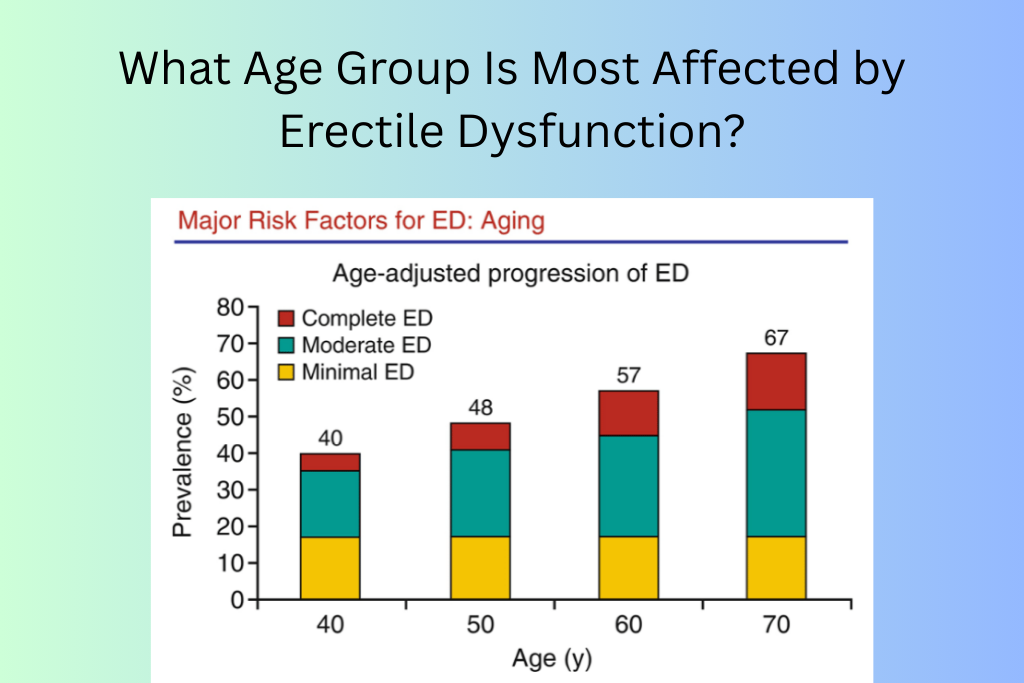Introduction
PDE5 inhibitors have revolutionized the treatment of erectile dysfunction (ED) and other medical conditions related to blood circulation. These medications enhance blood flow, offering an effective solution for millions of people worldwide.
In this article, we will cover everything you need to know about PDE5 inhibitors, including their mechanism of action, uses, benefits, potential side effects, and precautions.
Understanding Erectile Dysfunction
Erectile dysfunction refers to the persistent inability to achieve or maintain an erection firm enough for sexual activity. It can be caused by physical, psychological, or lifestyle-related factors.
While occasional erection difficulties are normal, frequent issues may indicate an underlying problem that requires attention.
At What Age Does Erectile Dysfunction Start?
ED can occur at any age, but its prevalence increases as men grow older. Here’s a breakdown of how ED affects different age groups:
1. Erectile Dysfunction in Men Under 30
While less common, ED can still affect younger men, with studies suggesting that around 8%–10% of men under 30 experience it.
Causes are mostly psychological, including performance anxiety, stress, depression, and excessive porn use. Lifestyle factors such as smoking, poor diet, lack of exercise, and alcohol or drug use can also contribute to ED in younger men.
2. Erectile Dysfunction in Men Aged 30–40
Around 11%–15% of men in their 30s experience some form of ED. Stress from work, relationships, and financial pressures can trigger psychological ED. Some early signs of medical conditions like high blood pressure, diabetes, or obesity may start contributing to ED.
3. Erectile Dysfunction in Men Aged 40–50
ED becomes more noticeable in this age group, affecting about 20%–25% of men. Decreasing testosterone levels, increased stress, and the onset of heart disease or diabetes play a major role. Lifestyle adjustments, such as regular exercise and a balanced diet, can significantly improve symptoms.
4. Erectile Dysfunction in Men Over 50
By the time men reach their 50s, nearly 40% experience some level of ED. Blood flow issues, nerve damage, and chronic conditions like hypertension, diabetes, and heart disease become major contributing factors. Many men in this group benefit from medications like PDE5 inhibitors (Viagra, Cialis), as well as lifestyle modifications and medical treatments.
5. Erectile Dysfunction in Men Over 60 and Beyond
Studies suggest that 50%–60% of men over 60 have ED. In men over 70, the percentage rises to 70% or more due to a combination of aging-related health conditions. While ED is more common in this age group, many men can still enjoy a healthy sex life with proper medical care and lifestyle changes.
Common Causes of Erectile Dysfunction by Age Group
| Age Group | Common Causes of ED |
|---|---|
| Under 30 | Performance anxiety, stress, excessive porn use, lifestyle choices, substance abuse |
| 30–40 | Work stress, early signs of high blood pressure or diabetes, poor diet, relationship issues |
| 40–50 | Decreasing testosterone, obesity, heart disease, high cholesterol, diabetes, smoking |
| 50–60 | Chronic health conditions, reduced blood circulation, nerve damage, medication side effects |
| 60+ | Age-related decline in testosterone, cardiovascular diseases, prostate issues, medication use |
How to Manage and Prevent Erectile Dysfunction at Any Age
- Maintain a Healthy Lifestyle: Exercise regularly, eat a balanced diet, reduce alcohol consumption, and quit smoking.
- Manage Stress and Mental Health: Practice mindfulness, meditation, or deep breathing exercises. Consider therapy if dealing with anxiety, depression, or performance pressure.
- Get Regular Health Check-Ups: Monitor blood pressure, cholesterol, and blood sugar levels. Address any underlying medical conditions early to prevent complications.
- Consider Medical Treatment: PDE5 inhibitors (Viagra, Cialis, Levitra) can be effective for many men. Testosterone therapy and advanced treatments like penile implants or shockwave therapy are options for severe cases.
What Are PDE5 Inhibitors?
PDE5 (phosphodiesterase type 5) inhibitors are a class of drugs that prevent the breakdown of cyclic guanosine monophosphate (cGMP) in the body. cGMP plays a crucial role in relaxing blood vessels, thereby improving blood circulation.
These medications are primarily used to treat erectile dysfunction but are also approved for conditions such as pulmonary arterial hypertension (PAH) and benign prostatic hyperplasia (BPH).
How Do PDE5 Inhibitors Work?
PDE5 inhibitors function by blocking the enzyme phosphodiesterase type 5, which is responsible for degrading cGMP. By inhibiting this enzyme, cGMP levels remain elevated, leading to smooth muscle relaxation and enhanced blood flow, particularly in the penis and lungs.
For individuals with erectile dysfunction, this process helps achieve and maintain an erection when sexually stimulated.
Conclusion
Erectile dysfunction can affect men at any age, but the likelihood increases as they grow older. The good news is that ED is manageable with the right lifestyle adjustments, medical treatments, and mental health support. If you are experiencing persistent erectile issues, consult a healthcare professional to determine the best course of action for your age and health condition.




